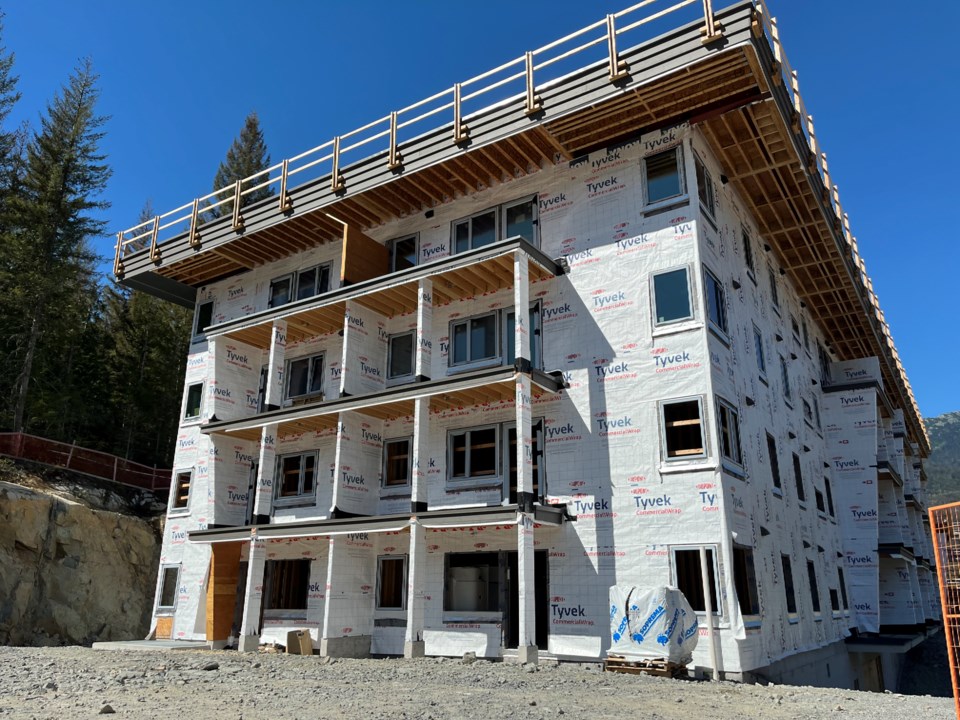As the Resort Municipality of Whistler (RMOW) begins early preparations for Budget 2026, housing remains at the top of the list in terms of community priorities.
That’s according to a recent pre-budget insights survey conducted from April 21 to June 9, which saw a total of 214 responses.
A focus on Smart Tourism ranked second among respondent priorities, followed by community engagement and climate action.
Other main themes gleaned from the survey included general affordability in Whistler; the need to prioritize core service delivery; desire for a second-homeowner or empty-homes tax; deferring projects for new amenities; accountability for decision makers; a need for increased transit service; requests to stop parking fee and property tax increases; concerns around staff remuneration; and a need for improved transparency and communication.
“Ultimately, the budget insight survey gives us a high-level understanding of the community’s priorities for spending, community tolerance for trade-offs, level of service satisfaction and the public’s understanding of the budget and its process,” said senior communications officer Jill Brooksbank in a presentation at the July 22 committee of the whole meeting.
“While the survey provides valuable insights into community perspectives, it is not statistically representative of Whistler’s population, like the [Community Life Survey], for example—the results reflect the views of those who chose to participate, and should be interpreted as indicative, rather than definitive.”
The vast majority of the 214 respondents were over 35 years old, with fewer than 15 respondents in the 15 to 34 age bracket.
“During our youth engagement workshops, we learned that, generally speaking, online surveys may not be the right tool to seek feedback from Whistler’s youth,” Brooksbank said. “We have learned that the high-school age group are very distrustful of online surveys, primarily because this group feels as though nothing changes, or changes are slow to come as a result of their feedback.”
The 20- to 35-year-old age bracket is similarly detached.
“Our initial guess is that the budget is a bit too removed from this age group, from their day-to-day actions, and it doesn’t necessarily hone in on their interests,” Brooksbank said. “Ultimately, Whistler’s youth are seeking impact. They need to see how their feedback affects change on the things that they care about most, which is housing, transit and climate, and it needs to be in a meaningful time frame.”
In terms of service satisfaction, library services topped the list, followed by parks and protective services. The lowest satisfaction was seen in permitting services, advocating for and enabling employee housing, and communications and input opportunities.
Respondents were also asked to rank services by which are most important to them. For those under 35, housing came first, followed by recreation facilities, roads maintenance, transit and emergency preparedness (all tied for second), and climate in third. The least important services, according to that age group, were online services and building and planning permitting (tied for first), followed by recreation programs in second and library, protective services, communications and climate action all tied in third.
For the over-35 group, housing topped the list of important services, followed by roads maintenance in second and emergency preparedness and transit tied in third. The least important were online services, climate action and building and planning permitting.
“Just because a respondent had listed something as least important, it didn’t necessarily mean that they were dissatisfied or wanted to cut a service,” Brooksbank noted, using climate action and environmental stewardship as an example.
“Ten people felt it wasn’t the RMOW’s responsibility, [while] 21 respondents supported the RMOW’s climate action stewardship work, but wanted to see the level of investment stay the same,” she said. “They felt the program needs more balance with other municipal programs. They felt climate action work is at odds with tourism, or they felt it may need to be defunded for affordability sake and for balancing the budget. And ultimately, only six respondents stated that they didn’t support climate action outright.”
As for what respondents would choose to cut or reduce to balance the budget, parks planning, climate action, communications and opportunities for input topped the list.
“Overall, there is some willingness to pay increased fees for Meadow Park Sports Centre, Whistler Olympic Plaza Skating Rink and Lost Lake Nordic Trails; there was the least desire for increased fees for parking and utility fees,” Brooksbank said.
“When we look at overall perceived value for dollars, 55 per cent felt that they received good value for the their tax dollars, and 61 per cent felt they received overall good value for their utility user fees.”
Stay tuned to engage.whistler.ca for more input opportunities ahead of the 2026 municipal budget.




